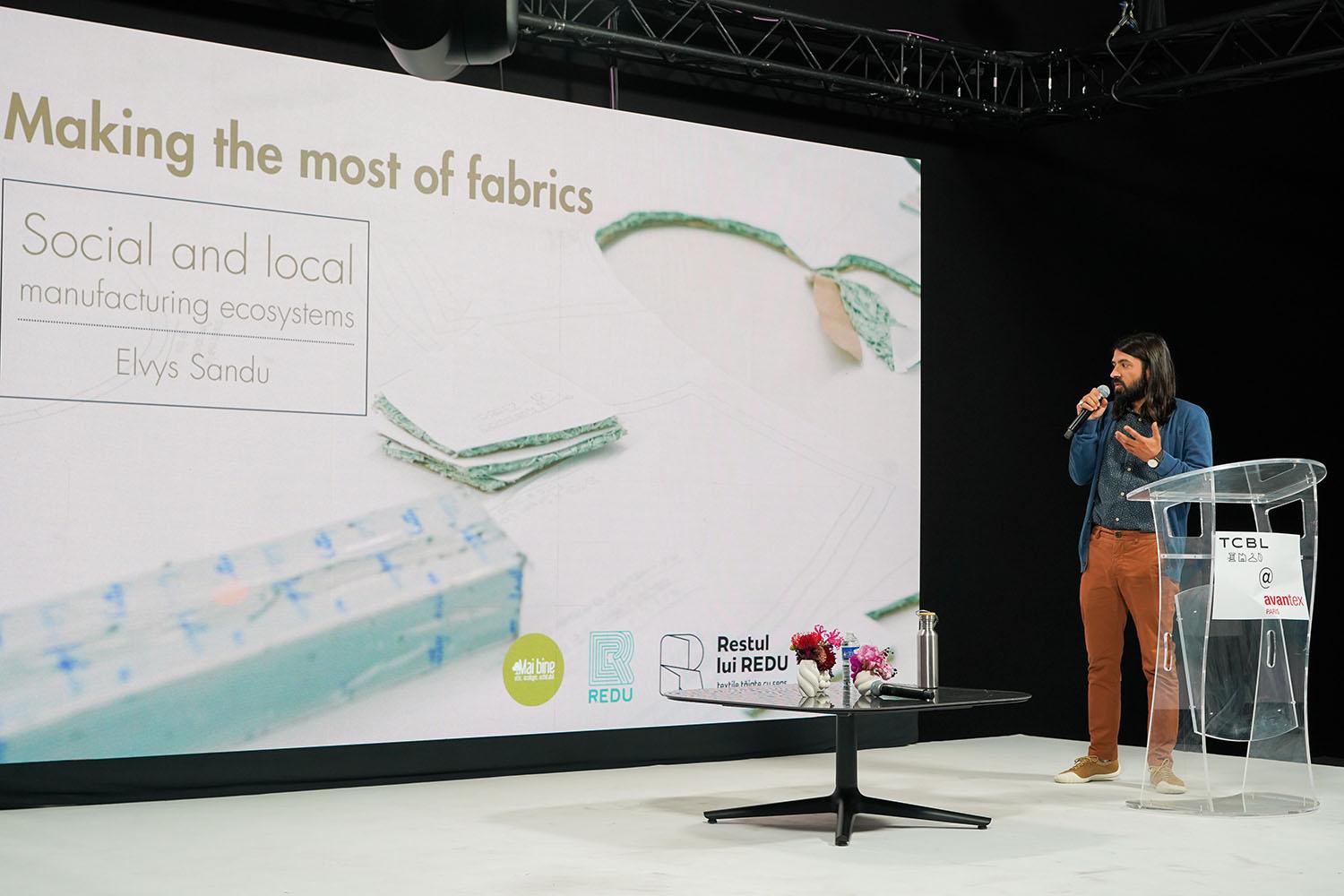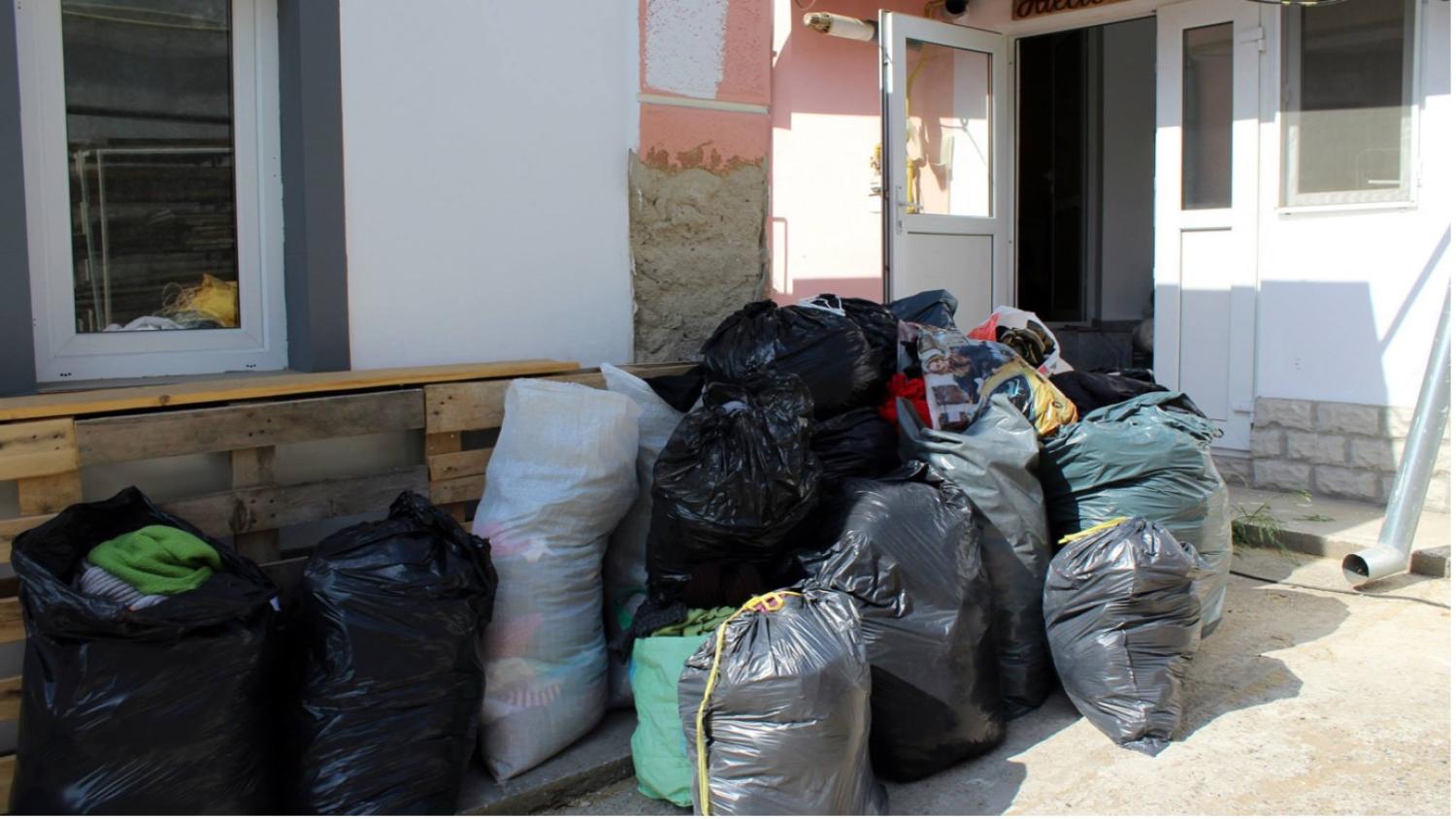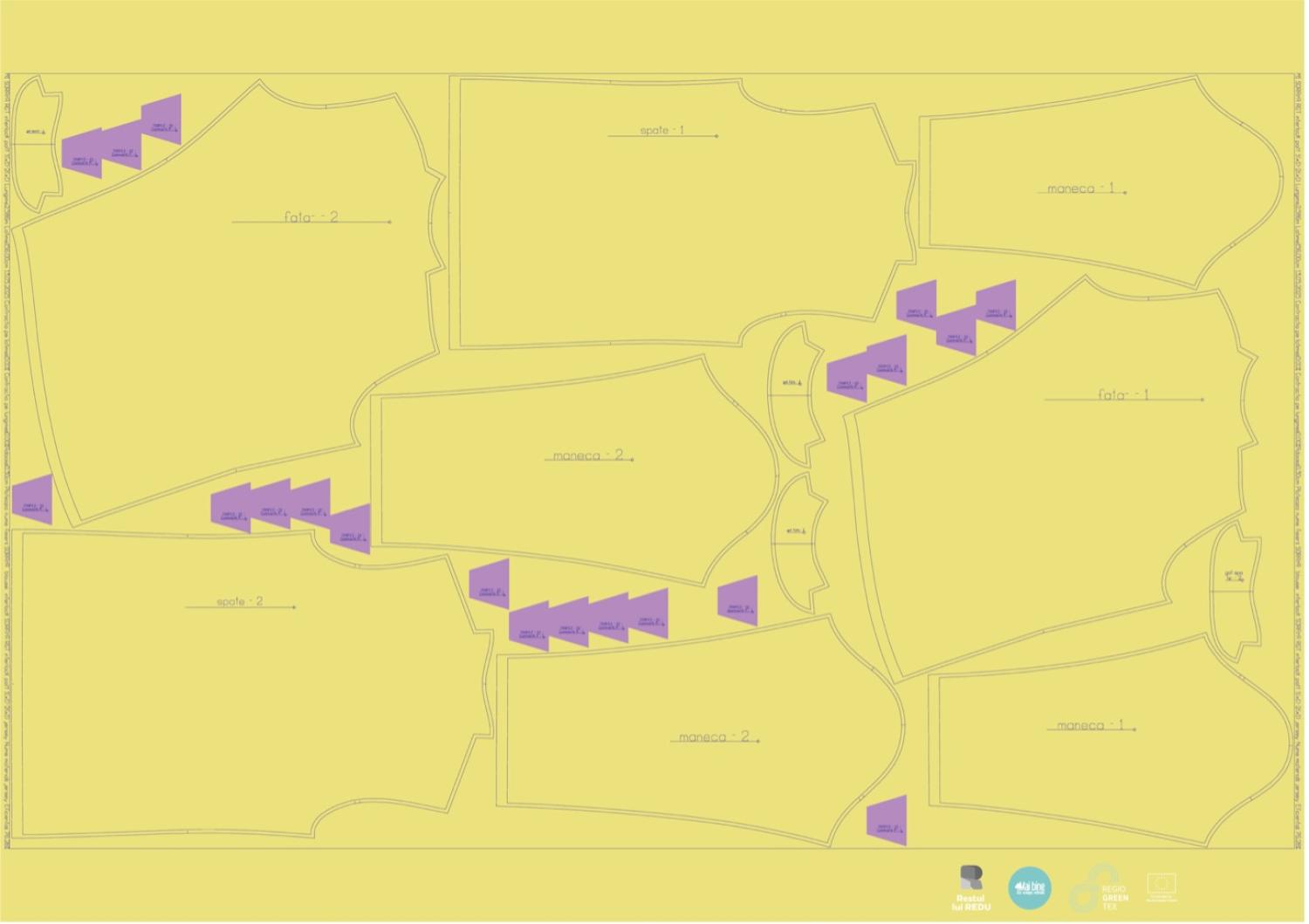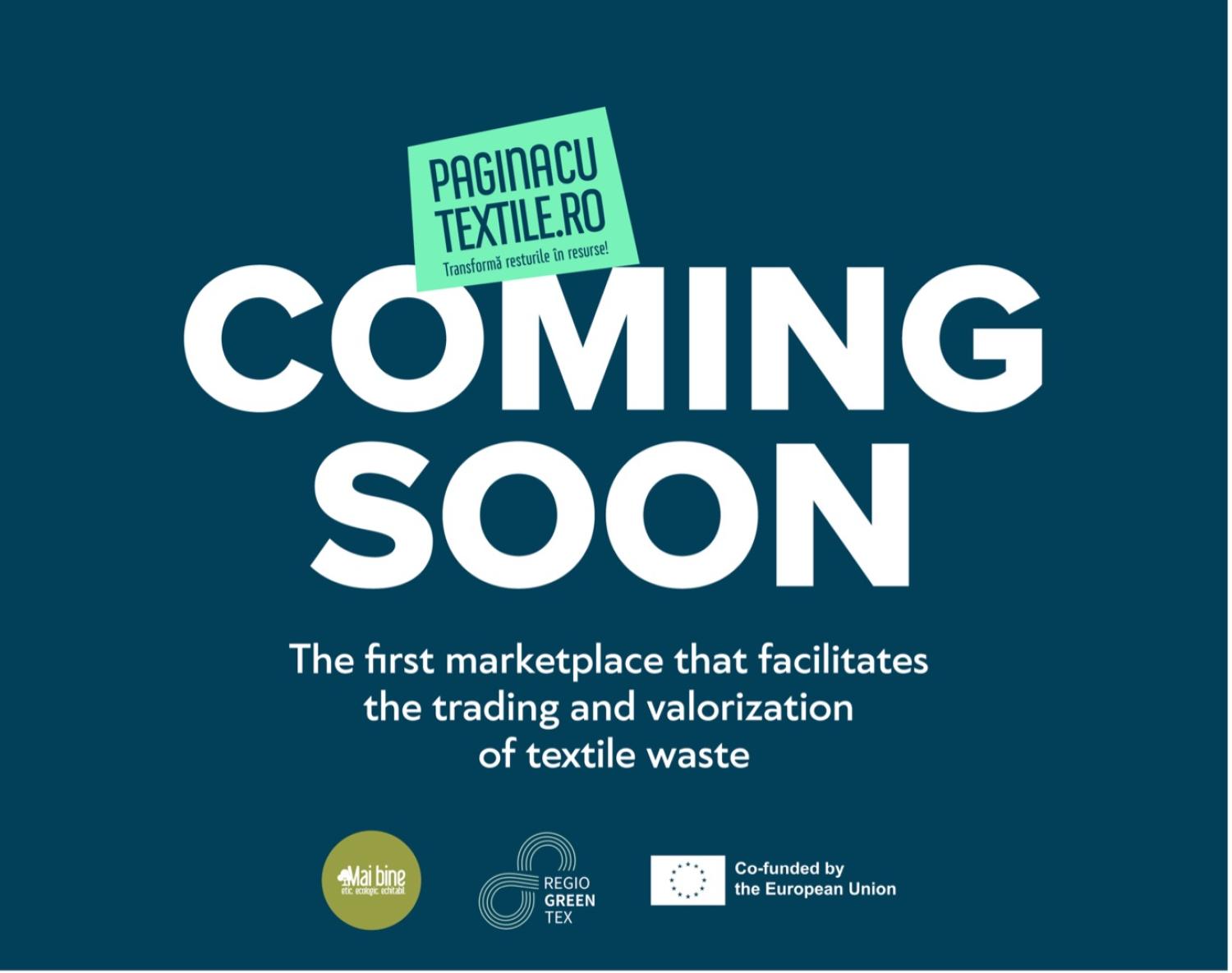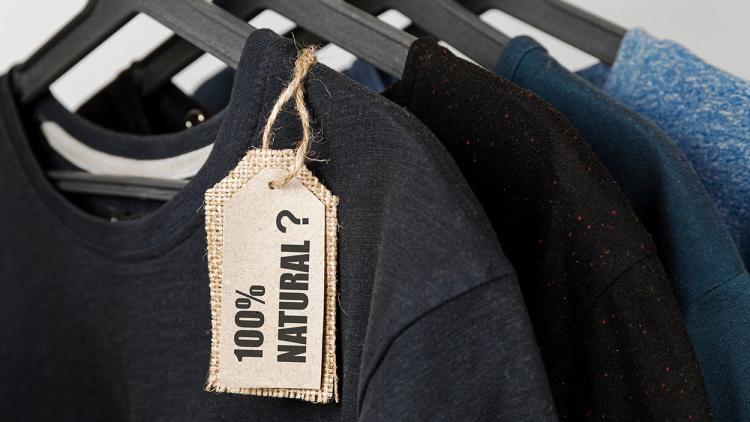Social enterprises demonstrate that local, small-scale initiatives can innovate and catalyze systemic change in the T&C industry particularly related to waste management. Despite structural challenges and lack of support, they pioneer practical, community-driven, and technological solutions that could help Europe transition toward a fairer and more circular fashion economy. In the context of the Bio-Fashion Innovation Day organized by TCBL at Avantex 2025, Elvys Sandu presented a talk about “Social and local manufacturing ecosystems” in which he spoke about how his social enterprise, REDU based in Iasi, Romania, addresses local and global challenges.
Context & Challenges in Textile Waste
Elvys Sandu situated his work within the broader context of European debates on textile waste and the new Extended Producer Responsibility (EPR) legislation. He highlighted the enormous scale of the problem: in 2020 alone, Europe generated around seven million tons of textile waste, with a significant proportion originating not from households but directly from factories as pre-consumer, post-industrial waste. The contrast between small-scale initiatives and industrial production is stark: over ten years REDU managed to collect six tons of waste in a span of 10 years, while a single medium-sized garment factory can produce as much as 500 tons in the same time. Within this system, it is mostly social enterprises, NGOs, and cooperatives that take responsibility for the time-consuming and undervalued work of collecting, sorting, washing, repairing, and reselling textiles—tasks that remain largely invisible to mainstream industry players.
Barriers for Social Enterprises
Despite their critical role, social enterprises working in textile reuse and upcycling face multiple barriers. The European textile sector is highly competitive, making it difficult for small initiatives to carve out a stable market niche. Teams often consist of people with limited prior training, requiring in-house skill-building and capacity development. The work itself—sorting, upcycling, and repairing—is inherently labor-intensive and not easily automated, which limits the ability to scale and keeps profit margins low. In Romania, these challenges are compounded by the absence of state support: even though REDU is certified as a social enterprise, this designation comes with additional reporting obligations but without financial or policy benefits. This structural imbalance forces organizations like REDU to operate with minimal resources while competing against larger, more conventional players.
Strategic Shift & Innovation
Over time, REDU realized that its initial community-based model of textile collection was not economically sustainable. While activities such as installing donation bins, operating a concept store, and running upcycling workshops were effective in terms of awareness and engagement, the costs of collecting and processing post-consumer waste outweighed the benefits. In response, the organization shifted its focus to pre-consumer, post-industrial waste from factories, which offered a more consistent material supply and a stronger business case.
To support this new approach, REDU, through Mai bine, it’s parent company and as part of the RegioGreenTex project, developed an innovative software tool designed to reduce waste at the production stage. Instead of dealing with fabric scraps only after they had been discarded, the software helps factories optimize their cutting processes so that offcuts are minimized before they ever become waste. While deceptively simple in concept, the development process was challenging due to the closed nature of existing industrial software systems and the lack of transparency in data sharing. Nevertheless, this tool represents a major step forward in aligning social enterprise activities with industrial realities.
Future Directions
Looking ahead, REDU aims to expand the potential of this software through a platform that connects different actors across the textile ecosystem. Another outcome from Mai bine in the RegioGreenTex project is the creation of a marketplace where factories can list deadstock or surplus fabrics, and students, designers, or small businesses can access these resources directly without intermediaries. This model not only reduces waste but also democratizes access to raw materials, particularly for emerging designers who often struggle to source affordable textiles. In this way, REDU combines its grassroots ethos with scalable innovation, positioning itself as both a community catalyst and a driver of systemic change in textile waste management.


